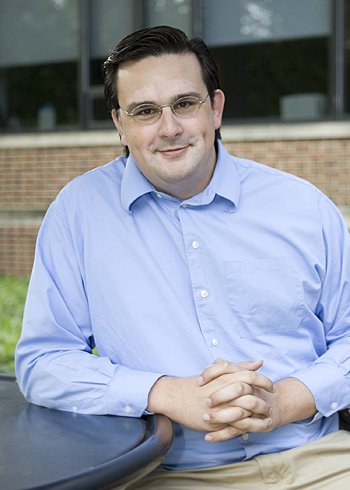UDaily: Would you call the FLDS group a cult?
Barnshaw: The word cult has a very negative connotation to it, so in sociology, we've moved away from the use of that word, and the terminology that we use instead is “innovative religious movement.” So I would say the FLDS group falls under that definition. That's because there are really three types of religious entities--churches, sects and new religious movements. In a church, you have a conventional religious organization with pretty normative practices. In a sect, you have an aberrant--and when I say aberrant, I only mean “away from the norm”--religious organization with traditional religious practices. And in a cult, you have an organization that is both innovative in its orthodoxy and aberrant in its beliefs and practices.
UDaily: How would you define the difference, then, between a socially aberrant group like the Amish and a socially aberrant group like the FLDS?
Barnshaw: One of the questions I plan to ask in my class this summer is just that: Are groups like the Amish a cult or a sect or a religious movement? But the bigger question really is: Are they really aberrant, and to whom? Where this really comes to a head is in adjudication. It may be a normal practice within the FLDS association to have children as young as 12 getting married, but that's considered illegal in the state of Texas and elsewhere in the United States. Their religious beliefs are how they organize their own lives, and in the case of some of their practices, this has come into conflict with society.
I think where the difference lies between a group like the Amish and a group like the FLDS is that the Amish, while they don't use electricity or cars, and shun much of modern culture, interact quite a lot with what they and those outside their religion consider to be the outside world; whereas in the case of the FLDS, they really drew a sharp line between themselves and the outside world. From what we're hearing now, FLDS members were consistently warned that the outside world held real danger and problems, and they were instructed to interact only with those within their own group.
UDaily: Based on your research, would you say there is a particular type of person or demographic that is particularly susceptible to joining a group like the FLDS?
Barnshaw: Demographically, there are two things that immediately jump to mind. The first is a feeling of displacement and a need to belong, and the second is charismatic leadership. One of the earliest studies ever done on converting to an innovative religion was done on members of the Unification Church, better known as “moonies,” and what came to light was that the people who joined were mostly individuals who were not well socially integrated, who didn't have strong social frameworks, and who were looking on some level to find community. In many cases, conversion came slowly--they joined to find purpose in life and didn't automatically embrace the ideas espoused, although they did at some point have a revelation.
The second part to this is the charismatic leadership that many of these innovative religious movements offer. The leadership offers authority and legitimacy, and joiners are often drawn to this.
UDaily: How can you explain a person such as Warren Jeffs gaining so much power over so many people, though?
Barnshaw: When you're a charismatic authority, your legitimacy as a lawgiver comes from the sense of strength you project that's perceived by others. There's not external proof, such as the Bible, as there is in mainstream religions. The highest authority that members can follow, then, are the words of the leader. Often, too, fear is involved, because going against the domination means falling out of favor with the group, and ties with the outside world have already been cut. Ex-members of cults of various stripes often say they had a tremendous sense of fear, even after they left the cult, until they figured out another way to live their lives.
UDaily: Do you have any theories on why so many of these types of groups--for example, the Branch Davidians with their arsenal and the Heaven's Gate group with their mass suicide and the FLDS with their underage marriages--so often have unacceptable or dangerous practices at their centers? Would you say that the impetus to establish a fringe group comes from the need to legitimize the antisocial behavior or do you think the behavior develops over time as the groups become more and more insular?
Barnshaw: Research is less clear-cut on that, but I'd say that there's often such an internal cohesion in these groups and belief that the outside world needs resisting and that the movement is the only pure way to live, that there's an otherworldly focus. There's this belief that you have the truth and others don't, and when people believe in that truth so fervently, it tends to create more and more extremes. Also, there are thousands of cults out there that never get into the news, but unfortunately the ones that we do hear about end with tragic consequences.
I think, too, that many of the practices have to do with protection from the outside world, which is why you might resort to arming oneself. Also, there's often an end game--a sense that a final solution needs to be brought to bear, and this leads to drastic circumstances. Some of the decisions seem very irrational, but if your investment in an afterlife is so great and you believe that the world is so awful, then the ends can justify the means
Article by Becca Hutchinson
Photo by Tyler Jacobson, AS '06


